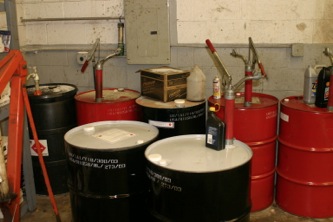Time in a Bottle — Reasons Behind Changing Engine Oils
When I was just a young pup in the 1960s working on lubes for Shell Research and Development, passenger car motor oils (PCMO) were much simpler and easier to understand. There were only three performance levels: motor light (ML), motor moderate (MM), and motor severe (MS). Auto manufacturers and lube oil marketers worked closely with

Engine Oil Choices Are Changing
The universal engine oil is expected to die in 2016. Diesel, gasoline and natural gas engine oils are going to be changing by 2016. With the current regulatory emphasis on improving fuel economy, which also reduces greenhouse gas (GHG) emissions, engine oil scientists will soon be reformulating all three oils to improve fuel economy. When the

Assembly Oils, Greases and Lubes
In the October 2012 issue of Engine Builder, I wrote about engine assembly lubes and why you should consider using them. When I was asked to write another article to help engine builders better understand and select engine assembly lubes for their operation, at first I didn’t understand the assignment. I thought I had
Breakin-In Is Hard To Do
Before we begin discussing assembly lubes and break-in oils, I would like to emphasize that no one factor is responsible for racing success (or failure). It’s like an algebraic equation with a lot of variables, all of which must be addressed. The same is true of engine assembly and break-in. You must utilize only those
Recent Advancements in Racing Oils
The racing oil community has been very busy this past year. This is much more satisfying to an old “oilhead” who has seen years where there were no new racing oil developments. Racers and engine builders traditionally focus more on improvements in hard parts, because that’s what they understand best. However, recent successes in racing
Diesel Engine Oils: Today and Tomorrow
Why are diesel engine oils different than any other engine oils? The Lubrizol Corporation, the world’s largest oil chemistry supplier, just created an excellent website (www.hddeo.com) that explains diesel engine oil composition very well. Diesel fuel combustion (or incomplete combustion) is accompanied by the production of soot (unburned carbon). Prior to exhaust emissions legislation this
Racing Oils
As a motorhead physicist, I get to look at engine lubrication from theviews of both an oil formulator and an engine failure analysis expert.Since I used nitromethane fuels when I raced funny cars, I’ve seen morethan my share of engine failures. I’ve also formulated oils for usewith alcohol and nitro burning engines, but let’s leave
